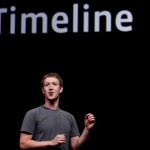
According to Elop: “You will starting seeing the word ‘Nokia’ inscribed on a map that you get from Microsoft properties over a period of time,” Elop explained to Pocket-lint in an interview behind closed doors at CES in Las Vegas. “Even if you are on a BlackBerry device, who recently said they were going to start using Bing Maps.”

So to put this in right perspective, which means that all mobile devices that uses Bing Maps–even if you own a new BlackBerry with the Bing Maps, you would see Nokia inscription on the maps themselves.
Well, it appears that the two tech giants are becoming closer than we could have imagined. Elop shared some more quotes during the interview that further elaborated his company’s association with Microsoft, which included a lot of stuff we already knew.
“Part of the relationship we established with Microsoft is that we are clearly placing a bet on the Windows Phone platform. [In return] they are placing a bet on our location-based platform: mapping, navigation and so forth,” said Elop.
The news will definitely come as a shock to companies associated with Bing, such as Research In Motion who makes the popular BlackBerry smartphones.

Surprisingly, even if you are using a BlackBerry device, who recently said they were going to begin using Bing Maps. In the time ahead, what you will observe is, across all the Microsoft properties including Bing maps, more and more work will be done by Nokia, said Elop in an interview with Pocket-lint.
The recent branding is the outcome of the agreement between Nokia and Microsoft where Microsoft will employ Nokia’s mapping features for Bing Maps.
Elop also mentioned to Pocket-lint that Nokia’s pact is to help Microsoft enhance its navigation services is a way to protect the Finnish company and ascertain that the agreement was not as one sided as perhaps people currently perceive:
“We initiated that for some important reasons as we had the better mapping assets so it made sense. But it also creates some balance in the relationship with Microsoft,” he said.
This certainly would not fits well with device manufacturers that use Bing Maps as opposed to Google Maps (BlackBerry smartphones and tablets, as noted, some Verizon Wireless Android devices, and all Windows Phone smartphones at this point), as they will effectively be advertising a competitor’s device with the mapping application. It will be interesting to see how Microsoft handles this and whether it makes exceptions for its larger partners.
Nevertheless, lots of die-hard Symbian fans rave about Nokia’s location-based platform of mapping and navigation, so this union with Mr. Softy’s search engine makes a perfect sense.


